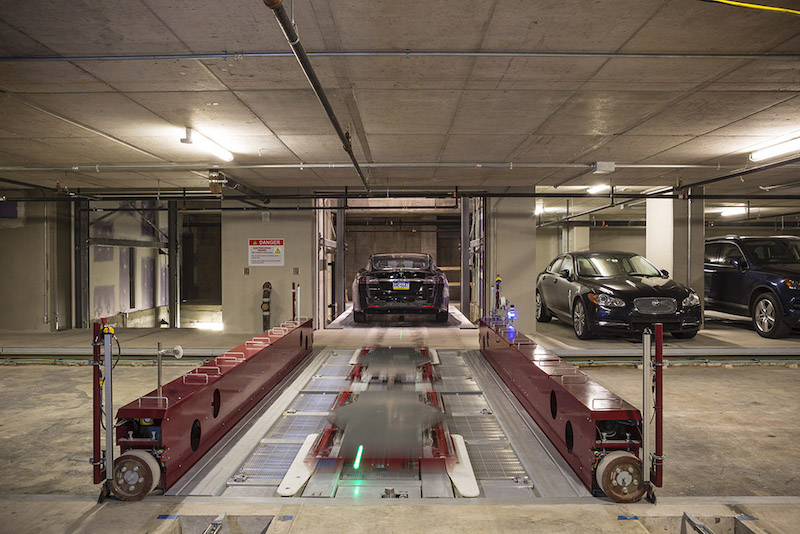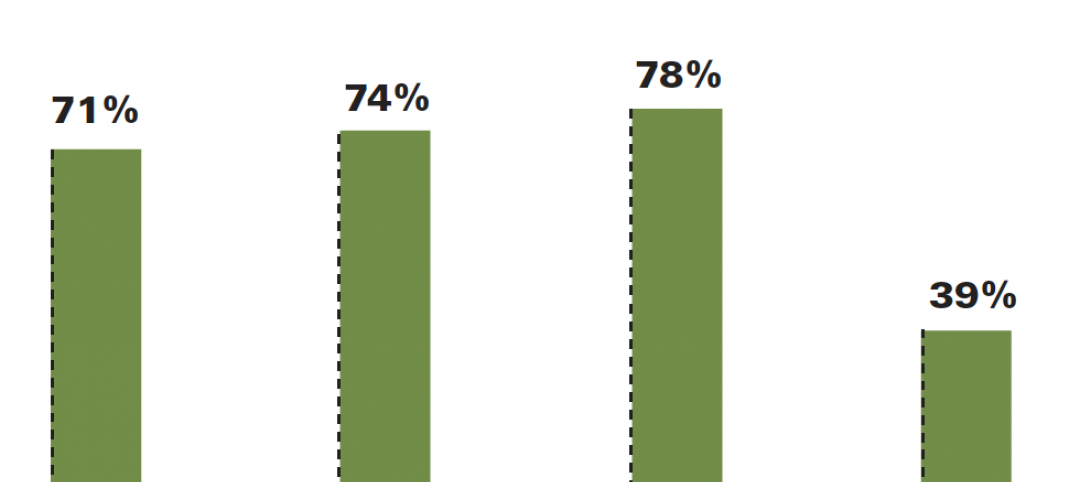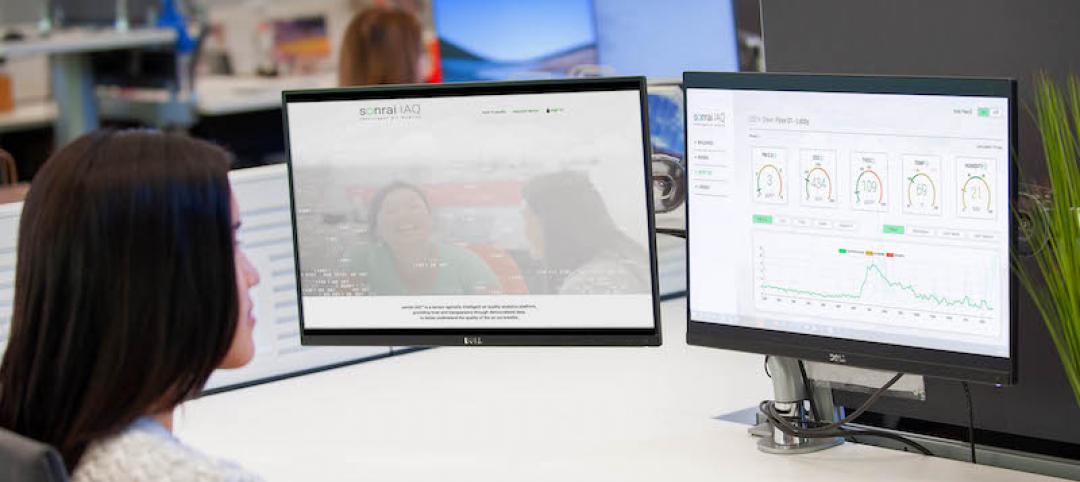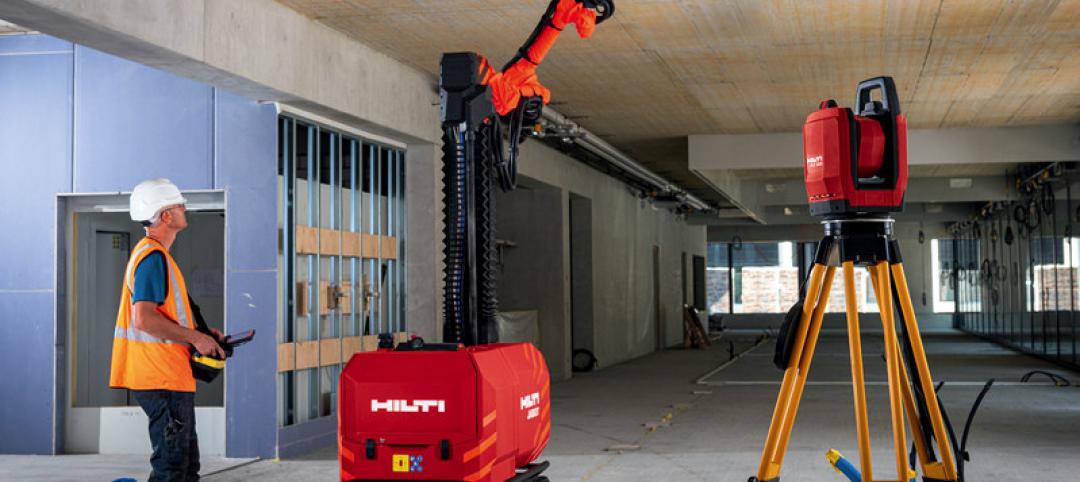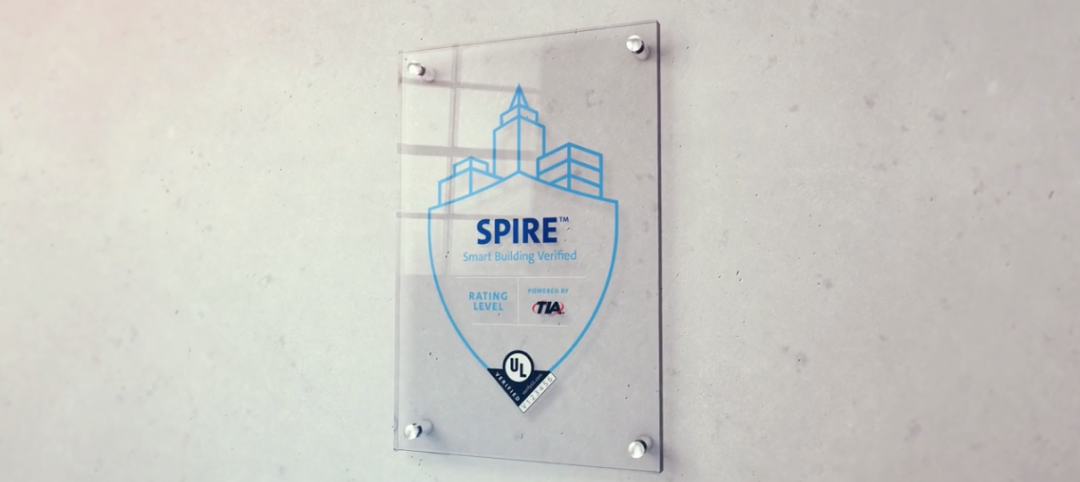500 Walnut is a 26-story luxury condo building with 35 residences whose selling prices average $5 million, the highest in Philadelphia to date, according to the building’s developer Scannapieco Development Corporation (SDC)
The tower—designed by Cecil Baker + Partners and built by Intech Construction—includes all of the high-end amenities one might expect, such as a heated pool, fitness center, dog grooming, massage room and sauna, and “outdoor retreat.” And then there’s something entirely different: an automated palletless parking system with 86 parking slots, far more than this building could have accommodated had it gone instead with a more conventional alternative.
“This amenity adds a level of convenience that no other building can,” says Tom Scannapieco, SDC’s owner.
How the automated parking system works
The system, installed by Westfalia Technologies of York, Pa., works like this: The resident drives into the building through a street-level bay door that he or she opens electronically via a transponder attached to the car’s grill or bumper. The driver enters a covered auto court—a kind of lobby, says Scannapieco—and then places the car into a transfer “cabin.” Drivers and passengers get out, and proceed to a kiosk into which the resident scans a key fob to answer a few safety questions on a touch screen—are the car doors shut, is the parking brake engaged, is the engine turned off, etc.—that the parking control system evaluates prior to storage.
A lift within the cabin lowers the car to the basement level, where the vehicle is then positioned onto a palletless transfer platform, which Westfalia’s Satellite (R) technology adjusts for the length of the car’s wheelbase. That platform rotates the vehicle 180 degrees so it can be easily driven out when retrieved, and then moves the car into the nearest parking slot.
When drivers need their vehicles, they can scan their fob either in the building’s elevator or at the kiosk, and the system automatically brings the car back to the transfer cabin. (The lobby kiosk notes the car’s position and expected retrieval time.)
500 Walnut has two transfer areas and two transfer platforms. Residents have 24/7 access to this system. There’s negligible risk of vehicle damage, theft, or break-in because there’s no reason for humans to be in the actual parking area.
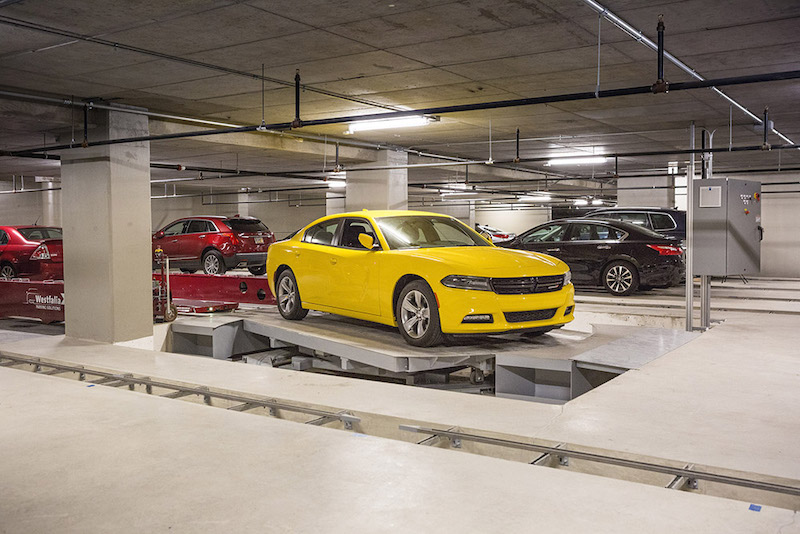
The automated system rotates the car before it's parked, so that it can be easily driven out of the garage upon driver retrieval. Image: Courtesy of Westfalia Technologies
How much does all this cost? Scannapieco and Ian Todd, Westfalia’s director of Automated Parking Systems, didn’t answer that question directly. On a per-sf basis, 500 Walnut’s 50,840-sf garage with state-of-the-art technology and mechanicals cost double a conventional parking garage, Scannapieco estimates.
But he’s quick to note that on a per-car basis, “there’s no premium,” basing that assessment on the fact that a conventional parking ramp system, with fire protection and ventilation included, would have been impossible to pull off within a building this size, to say nothing of the number of parking slots that Westfalia’s solution provided.
“By having this technology, we’re doubling our parking yield,” says Scannapieco. Todd adds that the developer saved money on excavation, and increased the value of its residential units by enhancing the user’s experience. (Scannapieco says the parking garage has become the most popular amenity in the building.)
500 Walnut opened in early 2018. Westfalia is currently installing its second palletless parking system, with 160 parking slots, in another building about a mile from 500 Walnut. That building is scheduled to open next year. Westfalia also installs palleted systems, but Todd is convinced that the newer technology will catch on as more developers and prospective owners become aware of it.
He adds, parenthetically, that while an automated palletless parking system could be installed in an existing building, there are far greater efficiencies when that system is part of a building’s original design.
Related Stories
AEC Tech | Jan 28, 2021
The Weekly show, Jan 28, 2021: Generative design tools for feasibility studies, and landscape design trends in the built environment
This week on The Weekly show, BD+C editors speak with AEC industry leaders from Studio-MLA and TestFit about landscape design trends in the built environment, and how AEC teams and real estate developers can improve real estate feasibility studies with real-time generative design.
AEC Tech | Dec 21, 2020
GIS benefits are widely accepted, but measurements of importance vary among AEC firms
Future usage might boil down to competitive pressure, according to a Dodge Data & Analytics survey.
AEC Tech | Dec 17, 2020
The Weekly show: The future of eSports facilities, meet the National Institute for AI in Construction
The December 17 episode of BD+C's The Weekly is available for viewing on demand.
AEC Tech | Dec 15, 2020
DLR Group launches intelligent air quality analytics platform
sonrai IAQ™ by DLR Group delivers actionable intelligence to optimize facility operations and enhance occupant comfort.
AEC Tech | Dec 8, 2020
COVID-19 affects the industry’s adoption of ConTech in different ways
A new JLL report assesses which tech options got a pandemic “boost.”
Contractors | Dec 4, 2020
‘Speed to market’ defines general contractor activities in 2020
Contractors are more receptive than ever to ways that help get projects done faster.
Smart Buildings | Nov 20, 2020
The Weekly show: SPIRE smart building rating system, and pickleball court design tips
The November 19 episode of BD+C's The Weekly is available for viewing on demand.
AEC Tech | Nov 12, 2020
The Weekly show: Nvidia's Omniverse, AI for construction scheduling, COVID-19 signage
BD+C editors speak with experts from ALICE Technologies, Build Group, Hastings Architecture, Nvidia, and Woods Bagot on the November 12 episode of "The Weekly." The episode is available for viewing on demand.
AEC Tech | Oct 28, 2020
Meet Jaibot, Hilti's new construction robot
The semi-autonomous robot is designed to assist MEP contractors with ceiling-drilling applications.
Smart Buildings | Oct 26, 2020
World’s first smart building assessment and rating program released
The SPIRE Smart Building Program will help building owners and operators make better investment decisions, improve tenant satisfaction, and increase asset value.


